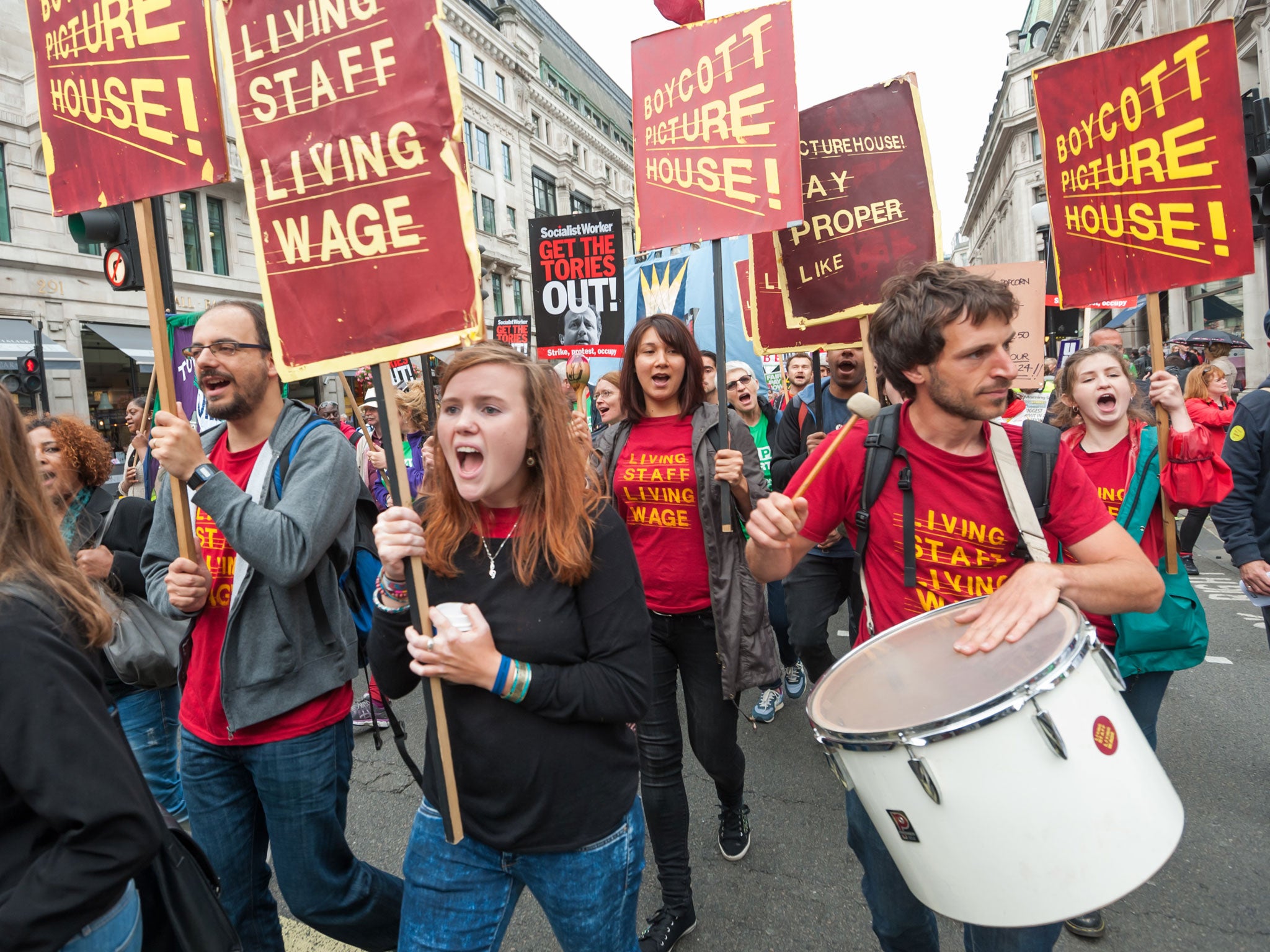National Living Wage comes in amid fears of widespread job losses
It has been warned that four million fewer hours could be worked per week in the UK as employers cut costs

Your support helps us to tell the story
From reproductive rights to climate change to Big Tech, The Independent is on the ground when the story is developing. Whether it's investigating the financials of Elon Musk's pro-Trump PAC or producing our latest documentary, 'The A Word', which shines a light on the American women fighting for reproductive rights, we know how important it is to parse out the facts from the messaging.
At such a critical moment in US history, we need reporters on the ground. Your donation allows us to keep sending journalists to speak to both sides of the story.
The Independent is trusted by Americans across the entire political spectrum. And unlike many other quality news outlets, we choose not to lock Americans out of our reporting and analysis with paywalls. We believe quality journalism should be available to everyone, paid for by those who can afford it.
Your support makes all the difference.Millions of low-paid workers are waking up to a pay rise as the new National Living Wage of £7.20 an hour is implemented around the country.
Unions have broadly welcomed the 50p increase, but said it was not fair that younger workers were missing out.
What is the National Living Wage, and who gets it?
And the Office for Budget Responsibility has warned tens of thousands of jobs could be at risk as businesses try to accomodate the hike in wage bills.
The independent body has also said 4 million fewer hours could be worked per week in the UK as employers cut costs.
The TUC general secretary, Frances O'Grady, welcomed the rise in wages, but expressed concern for younger employees.
“The Government must ensure that younger workers are not left behind - 21 to 24-year-olds will not be seeing an increase,” said Ms O’Grady.
"This is not fair. Future wage increases must narrow the pay gap between old and young," she said.
And Owen Smith, shadow work and pensions secretary, said the move was designed to hide other, "cruel" Tory policies:
"It's a typically cruel sleight of hand from the Tories to introduce their version of the living wage with one hand, while taking five times as much in cuts to Universal Credit and Tax Credits with the other.
"While this higher minimum wage for the over-25s is welcome, it will feel like an act of deception for the two million families set to lose £1,600 a year through cuts to in-work support."
Justin King, the former chief executive of Sainsbury’s, said the policy would “destroy jobs” when it is introduced. Sectors with large numbers of low-paid workers such as retail chains, supermarkets and the hospitality sector are most at risk of job cuts.
The Chancellor George Osborne was also criticised for using a similar name for his policy to that of the Living Wage Foundation (LWF). The LWF recommend an hourly rate of £9.40 in London and £8.25 elsewhere, to reflect the cost of living in the UK.
Businesses who fail to increase their workers’ minimum wages face fines of up to £20,000 per worker and bosses run the risk of being disqualified as a company director for 15 years.
Join our commenting forum
Join thought-provoking conversations, follow other Independent readers and see their replies
Comments